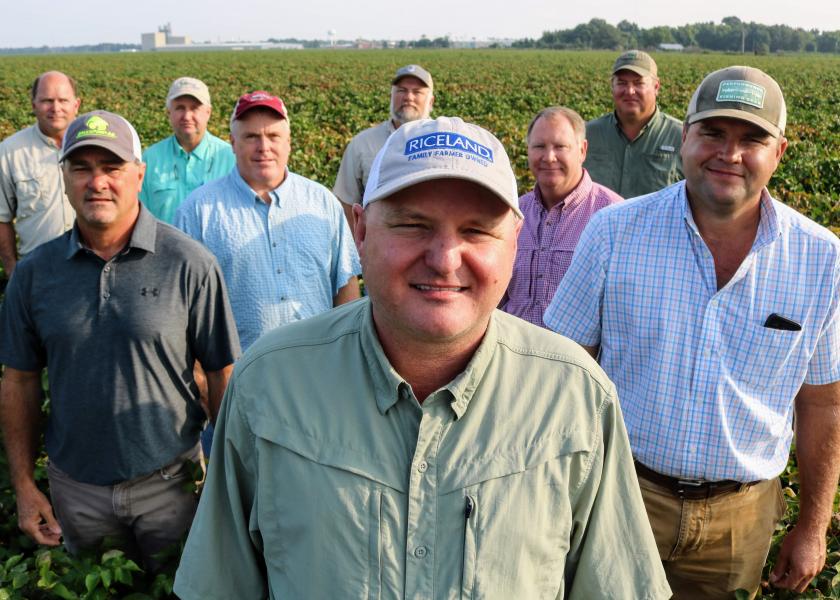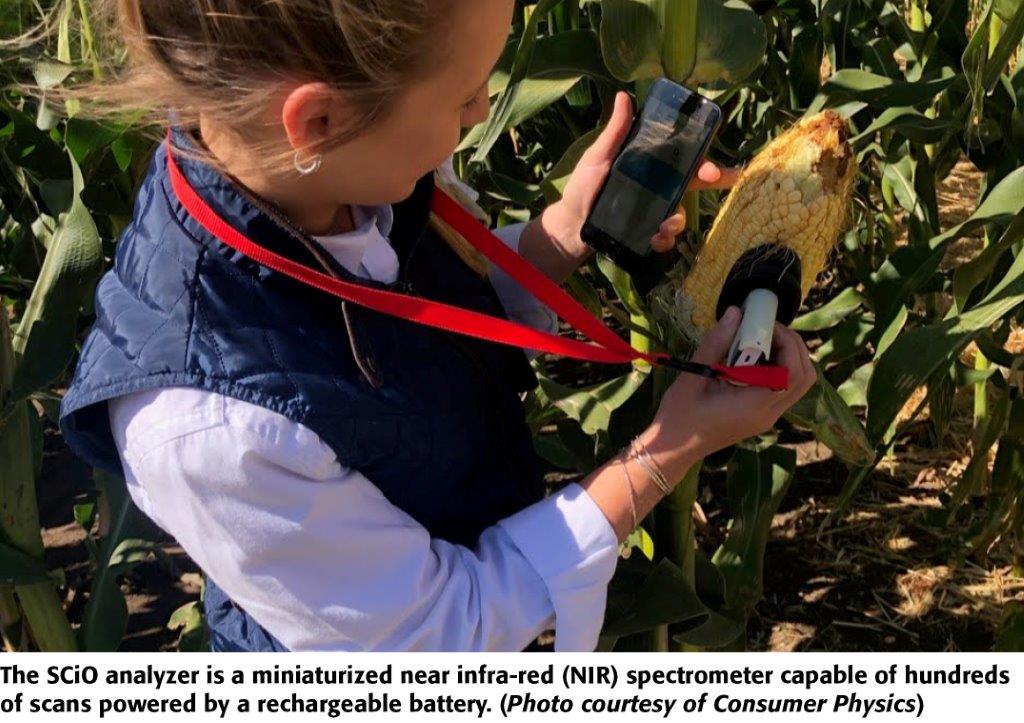Hope and History for Small Farming Town

Small farming towns often die the death of a thousand cuts as one business wound begets another, until a once thriving infrastructure is replaced with shuttered elevators, rusting mills and skeletonized gins. Farmers, despite steadfast vigilance along the ramparts of individual land holdings, sometimes watch in isolation as the lifeblood drains from agricultural communities. Not so in Dumas, Ark. A spirited group of growers is drawing a line in the dirt for town, county and history, and preparing a path toward economic revival.
Situated at the flatland convergence of the Arkansas, Mississippi and White rivers, Dumas was once a bustling town, blessed with opportunity and abundant farmland, but the echoes of a robust southeast Arkansas Delta past have grown ever fainter. Stepping out far beyond the bounds of personal farmland, Martin Henry, Dino Miller and Jason Smith have cast off complacency and are pushing for change. Through the creation of the fledgling Dumas Farmers and Businessmen Club (DFBC), the Desha County producers are driving toward economic renewal through community action and concrete goals. The trio is adamant: Promotion of agriculture is economic salvation.

“Our No. 1 goal is to promote our No. 1 industry—agriculture,” Henry says. “We want to help our town and businesses and just do some good things for the people in this area. I wish we’d started 10 years ago, but the time is now and we’re watching excitement build. Farmers are so independent, often to the point where it hurts us all. But when we get together and pool our efforts, the potential for major accomplishment is incredible.”
A triple-pronged effort may hold lessons for small towns across the agriculture spectrum. Henry, as DFBC president, is the ramrod of an attempt to boost the agriculture economy of Dumas (pop. 4,200) through a three-point plan. First, swing the town’s doors wide open to welcome major ag business. Second, establish significant ag-based college scholarships for Desha County students. Third, honor the forgotten farming pioneers who crafted Dumas’ remarkable agriculture history.
“As farmers, it’s way past time to come together and promote what we do for the sake of our whole town,” Henry explains.
Coats and Corn
Pushed out of the fields on a rainy day in 2015, Henry, Miller and Smith traded ideas over coffee: What was the best way to make a direct community impact as farmers and businessmen? They pooled money from several sources and donated to Coats for Kids and contributed funds to supply children’s books to Dumas’ public library. “You gotta start somewhere,” Smith recalls. “Now we’re involved in a corn supper each year with the chamber of commerce and we’ve got the Dumas Farmers and Businessmen Club going.”
In spring of 2018, DFBC filed for 501 nonprofit status, modeled after several farmer-led organizations in nearby Gillett and McGehee. Despite the hectic schedule of growers during crop season, Smith says windows of opportunity are waiting. “Sure, we’re busy as hell, but it’s not like that all year. We can combine labor at certain points of the year and get things done our men couldn’t do separately. Martin has been the leader of this whole deal and we’re all ready to roll together.”
Beyond Brick-and-Mortar
Rewind 40 years and Dumas once housed a strong industrial complex composed of wire, furniture, truck axle, and household appliance manufacturers. Slowly, but consistently, the businesses moved out of state or country, leaving behind the shell of a typical Delta town. (Presently, Dumas has a Diamond pet food plant that provides area growers with a secondary commodity market.)

“There is opportunity waiting here for ag business,” Smith emphasizes. “Tyson or Ozark Mountain Poultry or another company can make a great home. Value-added, non-GMO or something unique, there is a great fit here.”
“We can do this. We can achieve a big economic goal,” says Miller, vice-president of DFBC and location manager of GreenPoint Ag in Dumas. “It won’t happen overnight, but we can building stepping stones and get the right people involved. This is a great community with good people and we have a real possibility at something big.”
The arrival of the digital age has changed the dynamic for small farming towns, Smith contends. “As farmers and businessmen, we’ve got to think beyond brick-and-mortar structures because high-speed internet has given us new options. Every day, people across the country come up with internet-related business ideas and we can do it too.”
Fresh Boots
An eye on the future of Dumas means keeping fresh boots in the rows. DFBC is building a scholarship program for area youth that pursue ag-related degrees. “There are no farming-exclusive scholarships available here. There are Farm Bureau and conservation district scholarships, but nothing solely for farming. We’re changing that,” Smith says.

As secretary-treasurer, Smith typed out the inaugural DFBC scholarship application and took copies to local high schools in April 2018. In July, DFBC presented its first scholarship to Austin Hill, currently pursuing an agronomy degree at the University of Arkansas-Monticello.
“We’re excited and want to provide more and more scholarships,” Henry says. “We’re just now getting up and running. This is generating so much interest and great feedback.”
“All you have to do is look around and you can see there are fewer and fewer young people involved in agriculture overall. These scholarships are a real way to help start change,” Miller notes.
The scholarship funds are aimed toward securing the future—but the spirit of the awards points directly toward the near-past. Henry, Miller and Smith are adamant: They are blessed to farm and work on the shoulders of giants.
Those Who Came Before
The dirt of Dumas hides the tracks of farming legends, and Henry wants the forgotten history preserved. “There are so many stories in these fields we’ve all taken for granted. The backbone of small towns is agriculture and we have to remember the lives of people who made this possible.”
A century in the past, Desha County farming was confined to ridges and bayou banks on what was essentially sandy cotton ground. Away from the high areas, the land was covered in trees atop flat buckshot that stayed wet most of the year. In the 1940s and 1950s, the county experienced an influx of migration from various parts of Arkansas and Texas. “These were farmers who came to get low-priced land that could be watered,” Smith explains.

A significant portion of the new arrivals were rice producers, intent on clearing bottom ground and taking advantage of virgin soil. They cut out raw farmland and fought the constant presence of water. Survival was the immediate focus—prosperity was for the next generation. Lashing two tractors together with a cable just to get a disc across a field was commonplace, as was a 24-hour shift of work when necessary. “Almost this whole area was in trees. They had to scratch and fight for every inch of land. This was about sacrifice and the future, and they stuck with it,” Smith emphasizes. “We farm on their backs. We want to honor them and show appreciation.
After clearing a field, flying in rice and pumping on water, the effort involved in a simple rice levee is testament to different era, he explains. “As the water came up, they’d watch the water line and run out there and put up levees because the water would mark the contours. They would pull those levees up as the water flooded the field. They grew like that for years, having to fight for a crop just to make it.”
And when equipment was scarce—no excuses. “They’d drag a big tree that was all root wads across a field to cover rice seed. Crazy stuff, but they made it work.”
Despite the continuous fight to shape the low-lying ground, every year was a degree easier, culminating in today’s southeast Arkansas breadbasket. Precision-leveled ground, continuous rice, zero grade, ditch systems, canals, controlled surface water and more, the fields around Dumas are a testament to pioneers of the 1940s-1960s. “The farmers that worked the ground before us were willing to move from a place they knew and home they had, and come down here to start new with no promises but hardship,” Smith says.
“Our foundation is due to these forgotten people,” Miller emphasizes. “The pieces of our past are still in place, but we’ve kind of forgotten some of them. We get lost in our own world. It’s not being selfish because we’re truly busy, but it’s wrong to lose contact with our past.”
“I call them ‘legacy farmers’ and we’re going to name the scholarships after these special people that are really kind of like heroes because they built what we farm now,” Henry says.
A ‘Missing Piece’
DFBC has kicked off with 10 founding members, but the nascent group expects significant growth, according to Smith: “We’re excited and have received so much interest. We may make membership contingent on raising money for these causes. That would be a great way to get guys immediately involved working for the community.”
Miller calls DFBC a “missing piece” of what is needed in Dumas: “We’re in the process of gaining members, and financial support is going to come once we really get going. We’re fixing to grow to help this community.”

Founding DFBC member Bubba Hudson, with Arkansas Farm Bureau, Desha County, says the organization seeks a community-wide reach: “This is about so much more than us and we want to get others involved. It’s about people that want to give back to the community and help the kids that are growing up right now around us.”
In five years, Smith envisions 75 to 100 members pushing for a major ag-related project. Economic development requires a great deal of time, talk and hands-on effort, and Smith says DFBC is preparing to strike the proper balance. “We want to be split between old and young farmers. Young farmers do the legwork and physical projects. Older farmers get their minds together and reach out to ag business. Young men and old men working together to strengthen Dumas.”
“At some point, you’ve got to stand up and say to yourself, ‘I can’t let my town die and not fight,’” Smith adds. “Enough sitting back or complaining. I want to be part of action and focusing on more ag business is the way to help our town. Agriculture is what we do.”
For more, see:
Living the Dream: Honoring A Fallen Farmer
Blood And Dirt: A Farmer's 30-Year Fight With The Feds
Agriculture's Darkest Fraud Hidden Under Dirt and Lies
Pigs Don’t Fly: Feral Hog Spread Is A Man-Made Mess
Cover Crop Bandwagon Frustrates Farmers
Frog or Foul: SCOTUS Weighs Historic ESA Case
Corn’s Carbon Cowboy Busts Outstanding Yields
Jimmy Frederick Booms 163 Bu. Soybeans
Bald Eagles a Farmer's Nightmare
Who Killed the Finest Soybean Soil in the World?
Meet The Father of Six-Row Corn







